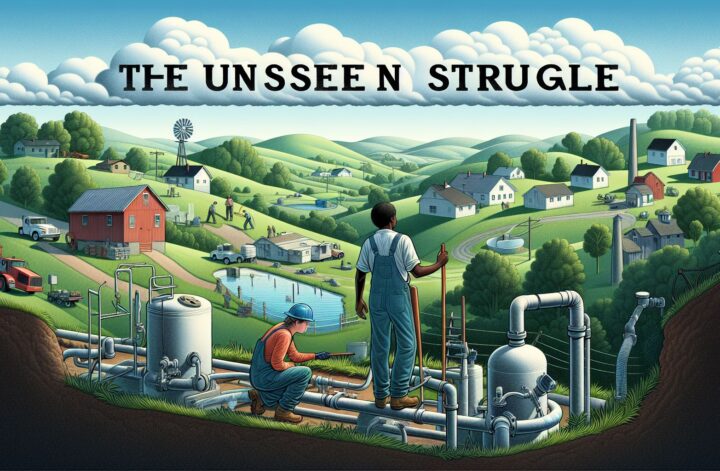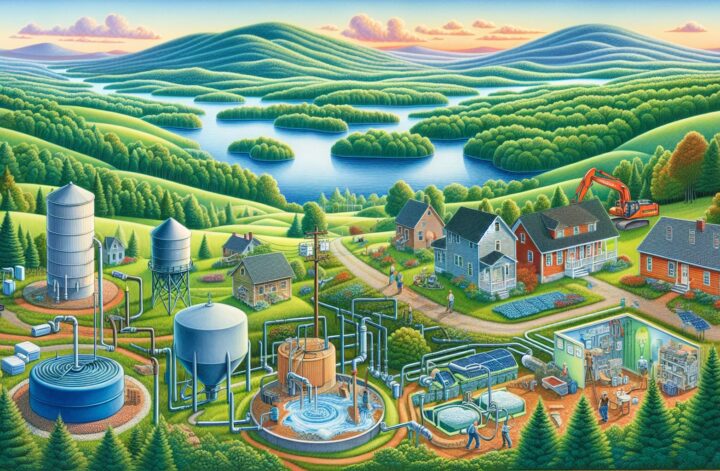Rural communities in Vermont are facing significant challenges related to their aging water and wastewater systems. Stretching from the breathtaking Green Mountains to the tranquil Lake Champlain, the state’s undulating topography conceals a less scenic picture beneath- deteriorating infrastructure, insufficient funding, and regulatory pressures putting a strain on the rural water and wastewater systems.
Vermont’s rural communities largely rely on decentralized water and wastewater systems, often maintained by local residents with limited technical expertise and financial resources. The state’s infrastructure, including many of these systems, was built in the post-World War II era and is now reaching the end of its design life. As pipes crack, leak, or, in worst-case scenarios, completely fail, these small communities face an uphill struggle with a mountain of repair costs.
The regulatory environment adds another layer of complexity. Increasingly stringent environmental health and safety standards from the Environmental Protection Agency require regular testing and maintenance to ensure the safety and efficiency of these systems. Nonetheless, these upgrades can result in higher bills for already cash-strapped rural households.
While federal and state-level grants and low-interest loans are available to assist with infrastructure projects, their allocation is often linked to population size and income, putting smaller communities at a disadvantage. Furthermore, the demand for these funds often exceeds their supply, and rural communities have to compete with urban areas that have more resources to design and propose projects.
There’s an additional challenge associated with the operational aspects of remote water systems- finding qualified, trained personnel to run them. In Vermont, as in other rural areas across the U.S., this stem from an aging workforce and the lack of young people moving into these roles. Younger generations tend to seek higher education opportunities and jobs outside the area, leaving a gap in the workforce.
However, despite the challenges, there are also opportunities for improvements. Recognizing the necessity for robust, efficient, and adequately funded water and wastewater systems, some rural communities in Vermont have begun to explore innovative approaches. These include shared service agreements between towns, public-private partnerships, and engaging with non-profit entities that can offer technical assistance and streamlined access to funding.
The plight of Vermont’s rural water and wastewater systems is symbolic of similar situations across much of America. There is an urgent need for investment and reform at both the state and federal levels to ensure that these communities are equipped to provide safe, clean water. Without thorough attention and action now, the situation may continue to degrade, leading to public health risks and a further deepening of the rural-urban divide.




